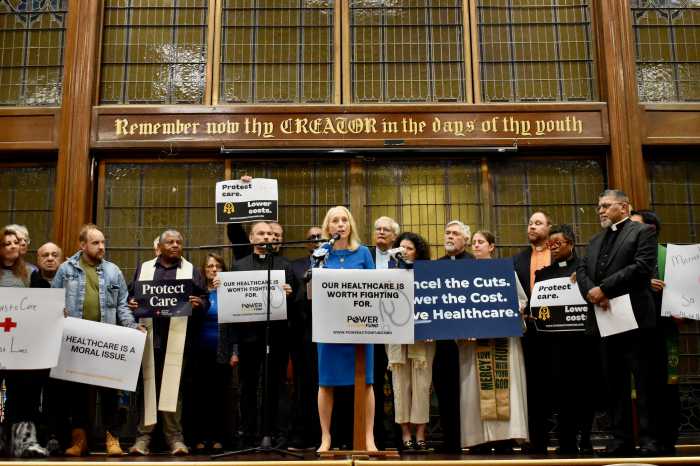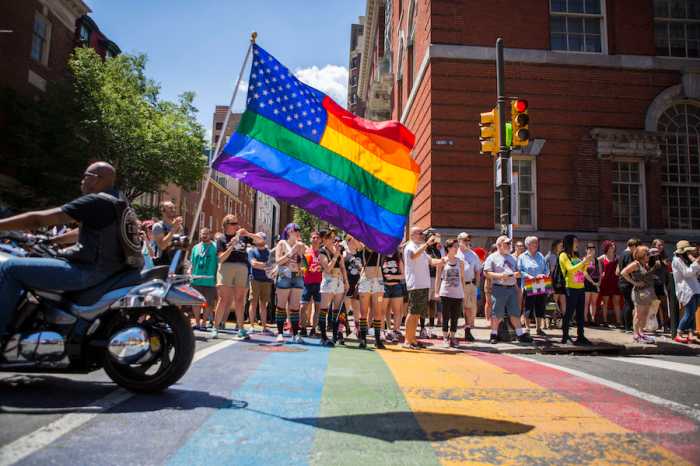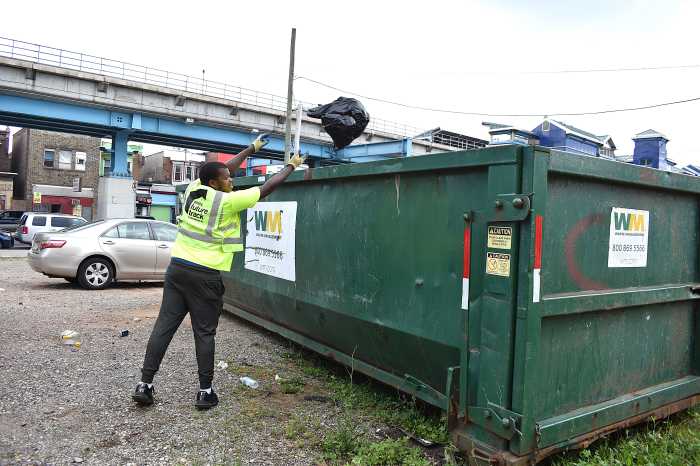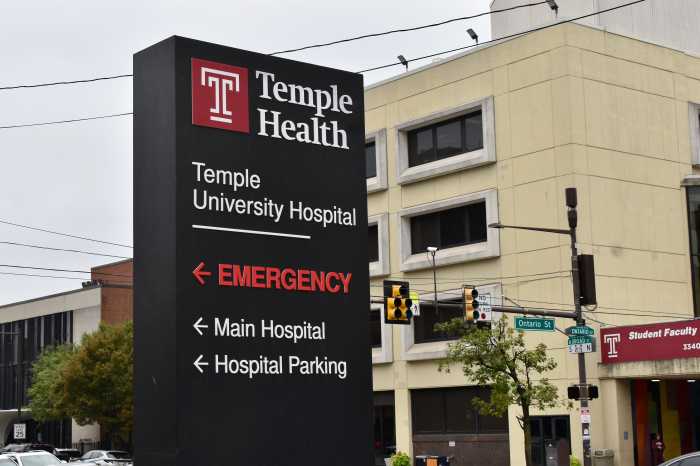 Bishnu plays with her granddaughter, Sherona, at home. The Bastola family, who are ethnic Nepalese from the small country of Bhutan, immigrated to Philadelphia in 2011. Credit: Charles Mostoller
Bishnu plays with her granddaughter, Sherona, at home. The Bastola family, who are ethnic Nepalese from the small country of Bhutan, immigrated to Philadelphia in 2011. Credit: Charles Mostoller
A study of Philadelphia’s Asian American community shows that while the fast-growing ethnic group is often perceived as successful, it in fact faces some of the toughest struggles with poverty of any in the city.
As Philadelphia City Councilman-at-Large David Oh put it, there are many positive stereotypes about Asian Americans – such as that they are smart, good at math and successful in business.
“They’re actually good stereotypes,” Oh said. “But it’s misleading, and any time something is misleading it is problematic.”
The Washington, D.C.-based group Asian Americans Advancing Justice worked in collaboration with local community groups to develop this report based on statistics from the U.S. Census, the Bureau of Labor Statistics, the Department of Homeland Security, and the Centers for Disease Control and Prevention.
The report, “A Community of Contrasts,” found that as the Asian American community in Philadelphia is grew 43 percent between 2000 and 2010, its struggles with poverty, education and jobs are becoming tougher than ever.
“This is a report that appears to be based on data that would indicate that there are people that are in need of help to the same extent as any other person in the city,” Oh said. “They should not be denied this help because people believe that they don’t need this kind of service.”
For Cambodian American immigrants, many struggle with American life because they are refugees from their country’s history of violent conflict.
“The majority of us who escaped and came here have very little education and low skills,” said Rorng Sorn, 45, executive director of the Cambodian Association of Greater Philadelphia. “The Khmer Rouge killed [many] from the cities. Most people came from rural areas, so they never had education. The majority of them worked in a factory.”
Naroen Chhin, 30, immigrated to North Philadelphia when he was 19 from Cambodia. He said that deportation is a fear – immigrants who are charged with even minor crimes can face deportation after serving prison time.
Statistics from the report include that unemployment among Asian American men rose 700 percent from 2007 to 2011. Overall unemployment among Asian Americans doubled during that period. In the same period, the number of Asian Americans living in poverty grew by 50 percent.
While 26 percent of Asian Americans are living below the poverty line, when the statistic is broken up by ethnicities, Cambodian Americans have a poverty rate of 41 percent. Chinese Americans are at 33 percent and Vietnamese Americans are at 31 percent. This is compared with 30 percent of African Americans living in poverty.
In terms of education, only 9 percent of Cambodians and 13 percent of Vietnamese Americans are college graduates, compared to 11 percent of Latinos and 12 percent of African Americans.
Out of the three cities studied for this report, New York, Boston and Philadelphia, Philadelphia has the highest rate of limited English proficiency among Asian Americans, 47 percent.
The report also found that 0.07 percent of funding from government agencies, foundations and institutions goes to Asian American organizations, and more than 40 percent of those funds go to arts and culture. Meanwhile, civic organizations run by volunteers are providing services to Asian Americans ranging from education to work force training with little or no funding.
But Asian Americans also have growing political power. Oh is the city’s first Asian American councilman. Voter turnout among Asian Americans grew 35 percent between 2004 and 2012.
“We’ve made progress, but there’s still room for improvement,” said Helen Gym, of Asian Americans United. “We need to realize the political power that our numbers indicate.”
____________________
Follow Sam Newhouse on Twitter: @scnewhouse
Follow Metro Philadelphia on Twitter: @metrophilly
Follow Metro Philadelphia on Facebook: Metro Philadelphia




























